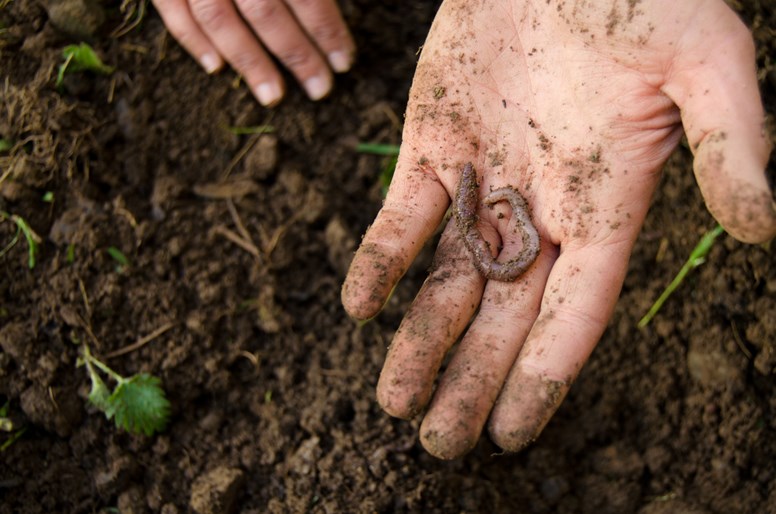Digging up soil health hotspots

Earthworms play an important role in soil health.
Farmers are being asked to check for middens – tennis ball-sized plugs constructed by earthworms – when monitoring their soil.
New research, led by SRUC, has found these plugs made of straw, plant debris and stones, cover up to 42 per cent of the soil surface in regenerative agriculture fields.
Importantly, these ‘middened’ patches – the area underlying the middens – are biological hotspots with high earthworm densities and very biologically active and porous soil.
Middens, which are built by Lumbricus terrestris earthworms to plug their vertical burrows, are more common in areas where conservation agriculture and regenerative practices such as no-tillage soil management are used.
Lead researcher Jackie Stroud, a Research Fellow and Senior Lecturer in Farming Systems at SRUC, said: “We would recommend that during soil monitoring, farmers check for the presence of middens to avoid underestimating biodiversity and misunderstanding soil health.”
The research, which was carried out in partnership with Biodiversity Agriculture Soil Environment farmers and funded by the NERC soil security programme fellowship and Dr EMC Trust, was published in the Annals of Applied Biology.
Further research, funded and published by AHDB/BBSRC, has found that these earthworms choose pathogen-infected straw to construct their middens, which has implications for reducing pesticide use and improving crop disease management.
The researchers are now looking for volunteers to take part in the next midden survey.
For more information, visit the Earthworms website.
Posted by SRUC on 15/07/2022
